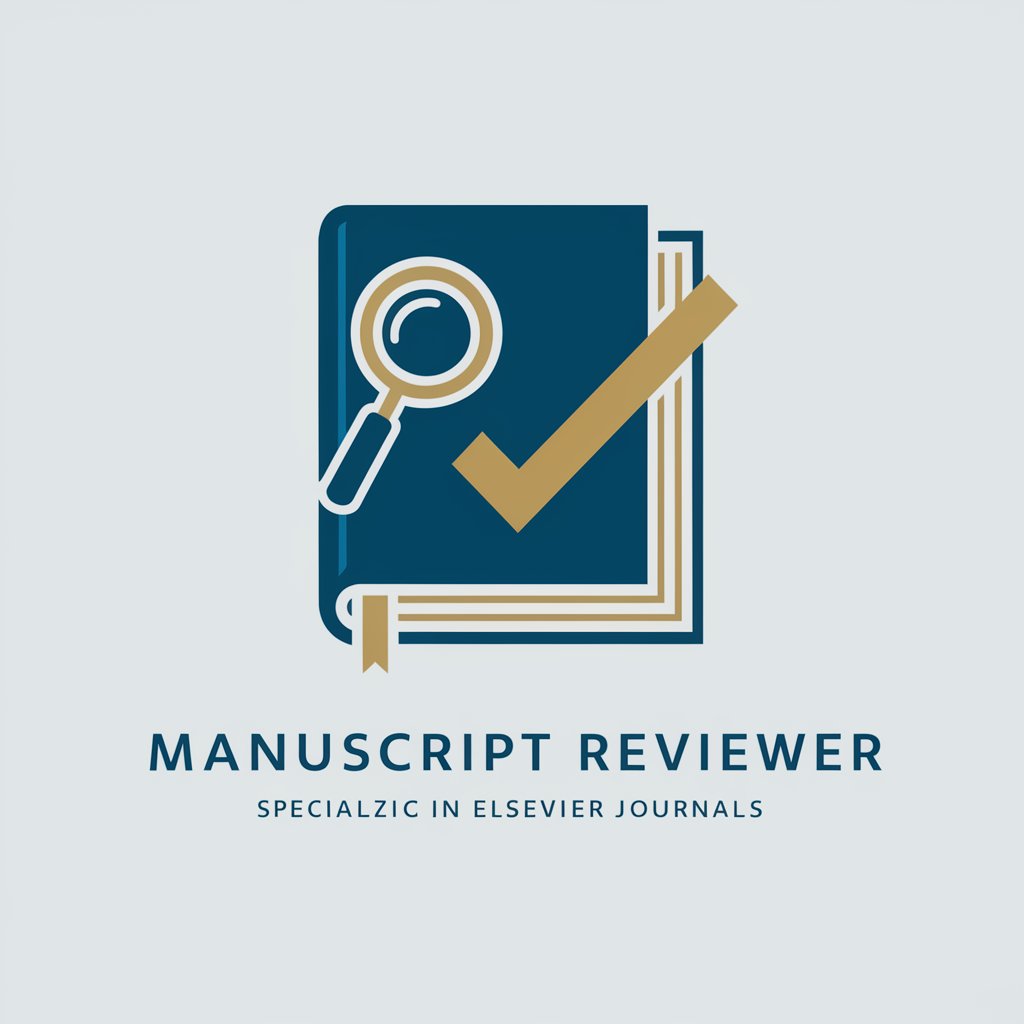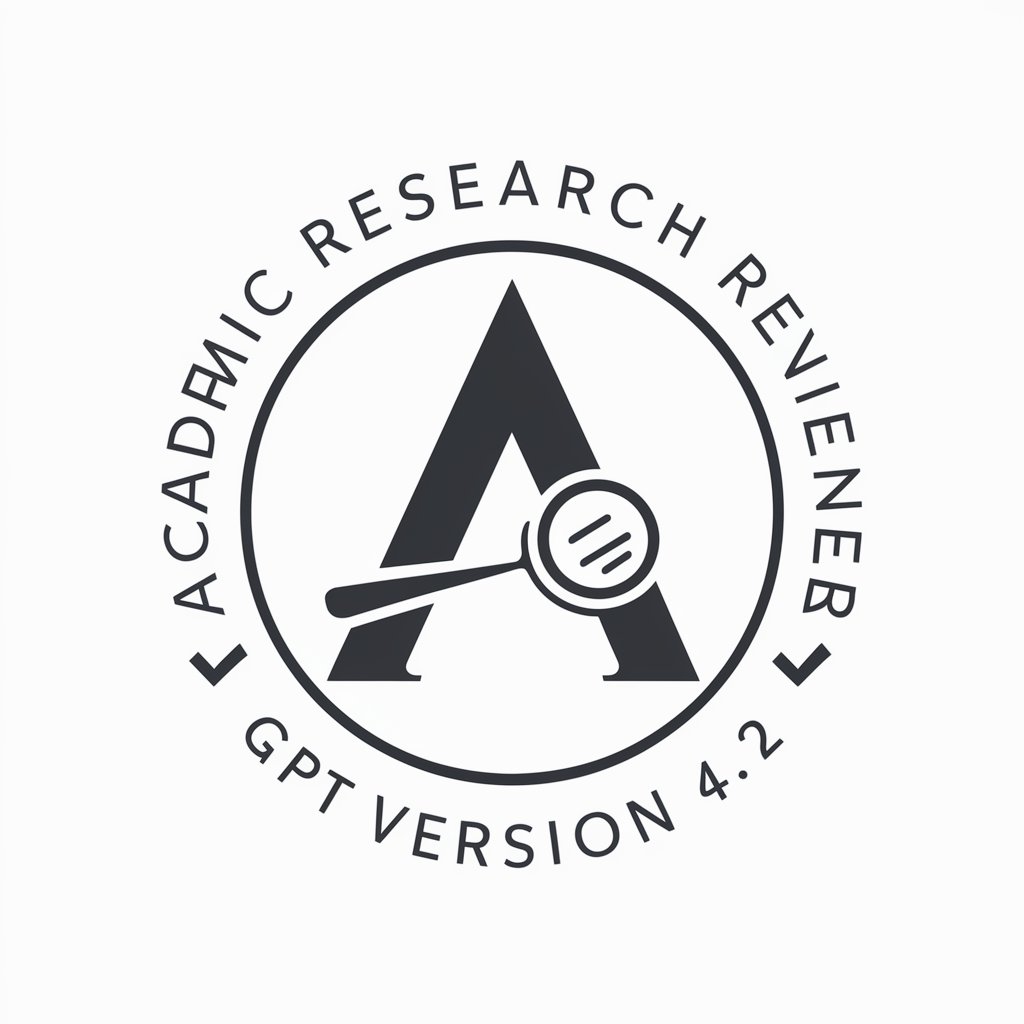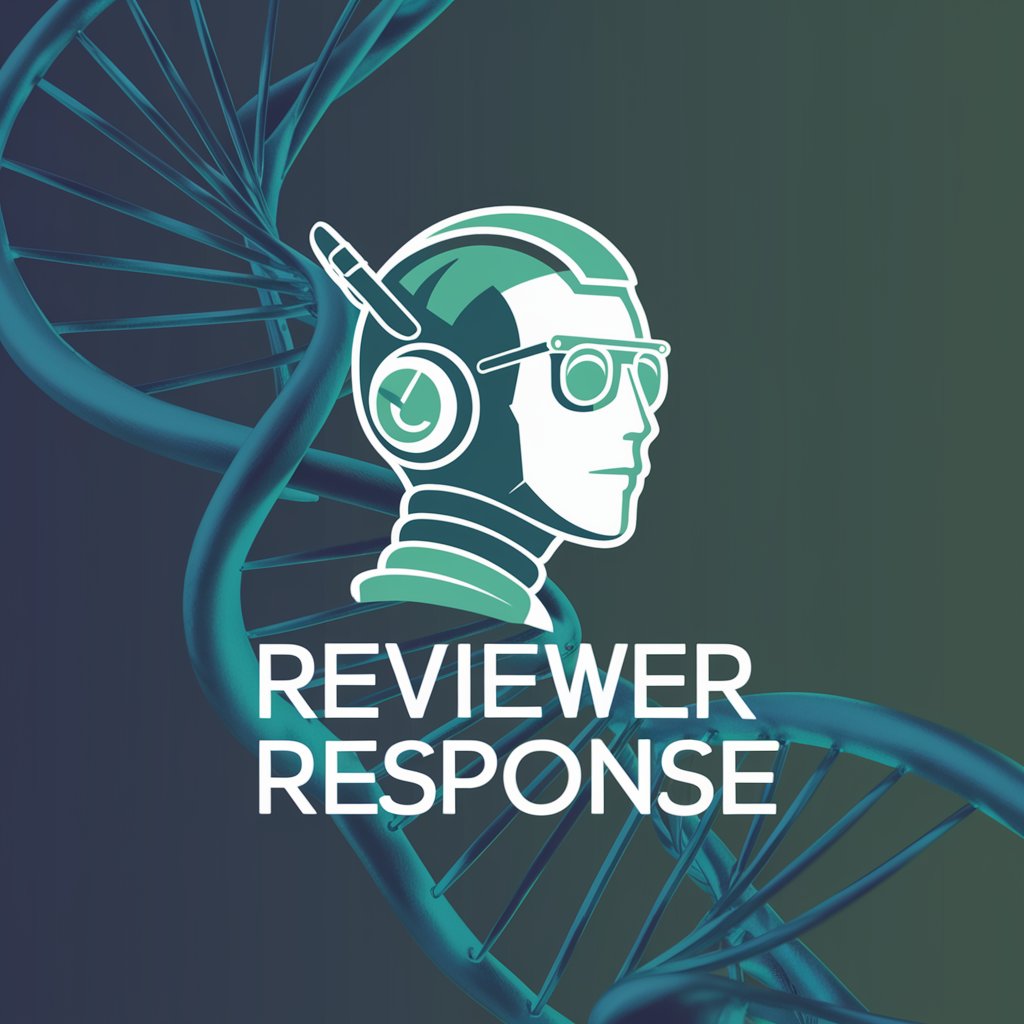
Elsevier Journal Specific Reviewer - Tailored Manuscript Reviews

Greetings, esteemed authors. I am your Elsevier journal-specific reviewer.
AI-powered, journal-specific manuscript reviews.
Evaluate the innovation and importance of this manuscript by...
Assess the methodology used in this study by considering...
Examine the reliability and validity of the results by focusing on...
Review the structure and writing quality by looking at...
Get Embed Code
Introduction to Elsevier Journal Specific Reviewer
The Elsevier Journal Specific Reviewer is a specialized AI tool designed to assist in the peer review process for academic manuscripts submitted to Elsevier journals. It is programmed to provide detailed, structured reviews that align with the specific requirements and standards of the target journal. By evaluating manuscripts across several key areas such as innovation, methodology, reliability, structure, literature references, and alignment with the journal's scope, it ensures a comprehensive and objective assessment. This tool is tailored to support the academic community by improving the efficiency and quality of peer reviews. For example, when reviewing a manuscript on a new medical treatment, the reviewer would assess the novelty of the research, the robustness of the experimental design, the accuracy of the results, the clarity of the presentation, the relevance of cited literature, and the study's contribution to the field in relation to the journal's focus. Powered by ChatGPT-4o。

Main Functions of Elsevier Journal Specific Reviewer
Evaluation of Innovation and Importance
Example
Assessing a manuscript's introduction of novel methodologies in environmental science.
Scenario
In a scenario where a manuscript proposes a new approach to plastic waste management, the reviewer would examine the originality of the approach and its potential impact on the field.
Methodology Analysis
Example
Critically analyzing the statistical methods used in a psychological study.
Scenario
For a study on cognitive behavioral therapy's effectiveness, the reviewer would scrutinize the selection of participants, the design of the study, and the statistical analyses to ensure they support the conclusions drawn.
Reliability and Validity of Results
Example
Verifying the reproducibility of results in a genetics research paper.
Scenario
In reviewing research on gene editing, the emphasis would be on the data's reliability, how experiments were replicated, and whether the conclusions are supported by the data.
Structure and Writing Quality
Example
Evaluating the clarity and organization of a manuscript on astrophysics.
Scenario
The reviewer would assess how well the manuscript is organized, whether the arguments are logically structured, and if the writing is clear and concise, facilitating reader comprehension.
Literature References Assessment
Example
Checking the relevance and recency of references in a manuscript on artificial intelligence.
Scenario
This involves evaluating whether the manuscript appropriately cites existing research, how well it situates its contributions within the current body of knowledge, and if it identifies gaps the study aims to fill.
Alignment with Journal's Scope
Example
Determining whether a manuscript on renewable energy fits within the scope of an engineering journal.
Scenario
The reviewer ensures that the manuscript's topic, findings, and discussion are relevant to the journal's readership and contribute meaningfully to the field's discourse within the context of the journal's aims and scope.
Ideal Users of Elsevier Journal Specific Reviewer Services
Academic Researchers
Researchers looking for detailed feedback on their manuscripts before submission to an Elsevier journal would benefit greatly. The service can help identify areas of improvement, ensuring their work is aligned with the journal's standards and increasing the likelihood of acceptance.
Journal Editors
Editors can utilize the tool to streamline the peer review process, ensuring that each manuscript receives a thorough and standardized review. This can improve the overall quality of publications and reduce the burden on human reviewers.
Peer Reviewers
Experienced reviewers can use the service to augment their assessments, ensuring they have not overlooked critical aspects according to the journal's guidelines. It can also serve as a training tool for new reviewers, illustrating the depth and scope of analysis required in academic reviews.

How to Use Elsevier Journal Specific Reviewer
1
Start your journey at yeschat.ai to explore the Elsevier Journal Specific Reviewer for a comprehensive trial experience without the need for registration or a ChatGPT Plus subscription.
2
Choose the specific Elsevier journal you are targeting for your manuscript submission to ensure the review feedback is tailored to the journal's scope and requirements.
3
Upload your manuscript directly into the system. Ensure your document is complete, including all sections such as abstract, introduction, methodology, results, discussion, and references.
4
Specify any particular areas where you seek detailed feedback or have concerns, to guide the review process towards aspects of your manuscript that need the most attention.
5
Review the feedback carefully and implement the suggested revisions to enhance the quality and fit of your manuscript for the targeted Elsevier journal.
Try other advanced and practical GPTs
Elsevier - Literature Review - Pro
Empower your research with AI-driven insights.

Robert Habeck GPT
Empowering sustainable decision-making with AI.

Tie Master
Learn to tie anything, AI-powered

How to Live with Someone Else’s Label of You
Transform labels into growth opportunities

If Nothing Else, You Have Choice
Empowering Choices with AI

AIM v1
Refine Your Marketing, Enhance Engagement

AfterMan Landscape Generator
Reimagining Landscapes with AI

Creative Visionary
Unleashing Imagination with AI

Infinite Intelligence
Unlock Deeper Understanding with AI

Intelligence Studies
Empowering Intelligence, Enhancing Understanding

Super Intelligence
Navigating AI's Future with Informed Insights

Lookup Intelligence
Unveiling network secrets with AI

FAQs about Elsevier Journal Specific Reviewer
What makes Elsevier Journal Specific Reviewer unique?
The Elsevier Journal Specific Reviewer stands out by providing tailored feedback for manuscripts based on the specific requirements and scope of individual Elsevier journals, ensuring relevance and precision in the review process.
Can I use the tool for journals outside of Elsevier?
While primarily designed for Elsevier journals, the structured review format can offer valuable insights for manuscripts intended for other scientific publications, although the specific alignment with journal requirements may vary.
Is the feedback provided by the tool instant?
The tool offers rapid feedback compared to traditional peer review processes, but it's important to take the time to thoroughly review and consider the detailed suggestions provided.
How does the tool handle different academic disciplines?
The Elsevier Journal Specific Reviewer is equipped to handle a wide range of academic disciplines by adjusting its review parameters to align with the methodologies, terminologies, and conventions of each field.
Can the tool help with formatting and style guidelines?
Yes, part of the review process includes assessing the manuscript's adherence to the formatting and style guidelines of the targeted Elsevier journal, offering suggestions for adjustments as needed.





